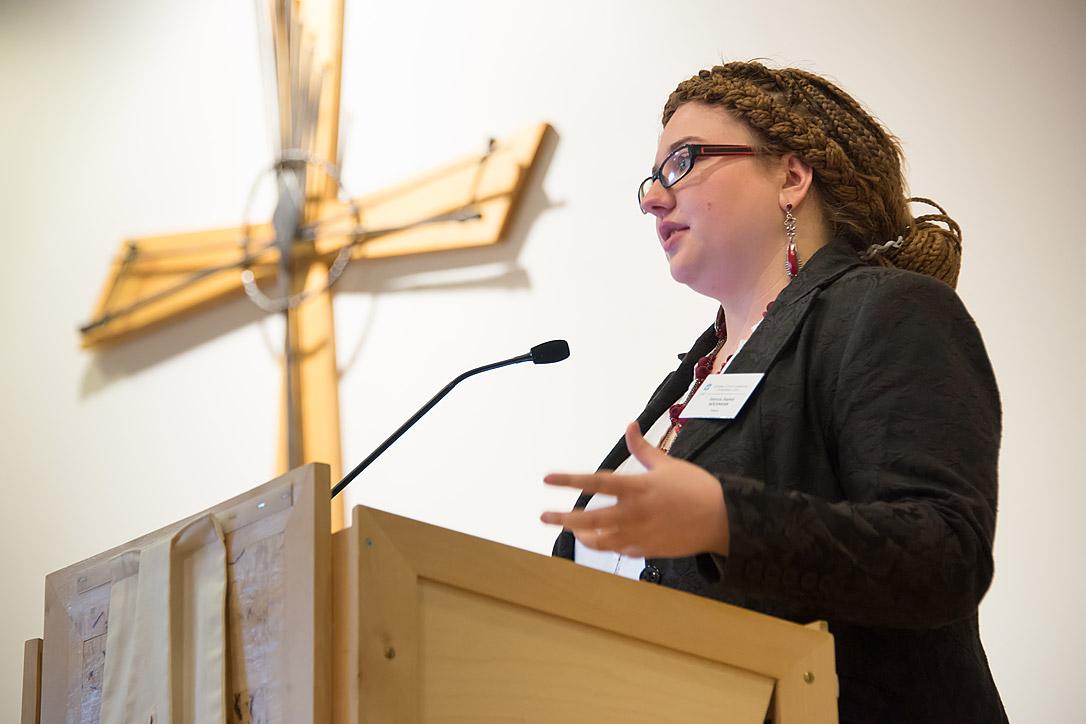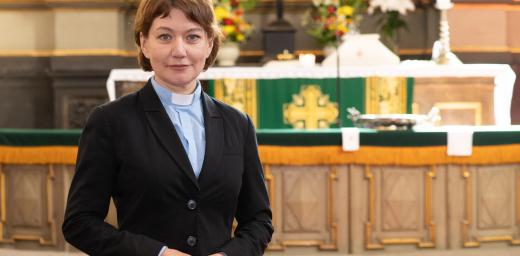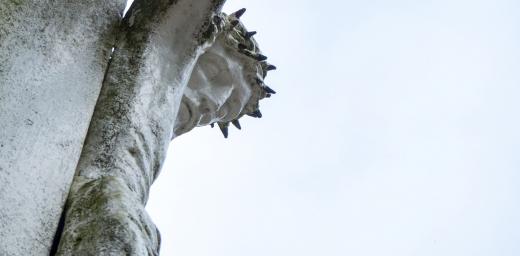Active Lutheran participation in Norway’s ecumenical life

Patricia Sophie Böckmann during the Trondheim Church Leadership Consultation, Norway. Photo: LWF/Ryan Rodrick Beiler
Ecumenical, advocacy and interfaith perspectives at LWF Europe gathering
(LWI) – A second panel discussion at The Lutheran World Federation (LWF) regional consultation in Trondheim, Norway, offered ecumenical, advocacy and interfaith perspectives on church witness in European society today.
Mr Terje Solberg, chairperson of the LWF National Committee in Norway, told the history of the Evangelical Lutheran Free Church of Norway. He described how, during meetings in 1876 that led to the founding of the Free Church, the question was asked if it was possible to reform the Church of Norway as a state church, but in a proper way. “Their answer was no.”
He said for many decades that followed, the Free Church’s ecumenical relations were difficult, in a context with a state church [Church of Norway], while also remaining distinct from other new denominations.
“However, times have changed,” said Solberg. “And now we are taking an active part in the ecumenical work in Norway.”
Local Bishop Bjørn Roger Stien, discussed the current challenges and successes of the church in northern Norway. “It's about reaching the people's hearts, reaching the people's lives where they are,” he said. He talked about theology expressed through relevant preaching and contemporary worship for the growth seen in the congregations of the Free Church.
While expressing appreciation for the ecumenical orientation of Norwegian churches, the Free Church president, Rev. Jarle Skullerud said, “I would like to see a higher awareness of Lutheran doctrine within our denomination.”
One symptom of this challenge, according to Skullerud, is the “steep fall in Bible knowledge and faith practice even in Christian homes. The church has to help parents to be church in the family, to teach their children and be good examples to follow.”
Skullerud also affirmed the need for an outward-looking missional orientation: “In Norway, we still need more congregations reaching out to the neighborhood and especially to the margins of society.”
The Free Church and Church of Norway hosted LWF’s Europe member churches for the 11-14 May leadership consultation. The panel and other discussions were held under the Twelfth Assembly and 2017 Reformation anniversary theme, “Liberated by God’s Grace.”
Advocacy for the environment in Romania
Rev. Dr. Elfriede Dörr, of the Evangelical Church of the Augsburg Confession in Romania, presented a visual tour of her church’s context in a talk titled, “Liberated to ecological commitment in education, health and social development.”
In one example, she showed images of protests that erupted after a Canadian mining company proposed a project that would have turned the area into a crater, forcing residents to be resettled elsewhere.
“The waste would be very destructive to the environment and people would no longer have the proper basis for their lives,” said Dörr. “So there were very major protests all over the place and the women came from the Bible group to protest.”
Interfaith initiatives
Patricia Sophie Böckmann, a German living and studying in Strasbourg, France, closed the session with reflections both as a member of the Union of Protestant Churches of Alsace and Lorraine as well as a Global Young Reformer, a network connecting young adults from all over the world.
She talked of Strasbourg’s cosmopolitan context where many different cultures, religions and beliefs meet. “Living together makes it necessary to interact with each other and to help each other to define our own identity in and through this interaction,” she said.
Through interfaith initiatives that bring together Christians, Sephardic and Ashkenazi Jews, Muslims, atheists, and agnostics, Böckmann has reached two conclusions: “One is to be open to what the other has to tell you.” The other: “You also have to be true to yourself and to appreciate your own unique beliefs,” she added.
(A contribution by freelance journalist Ryan Rodrick Beiler)





